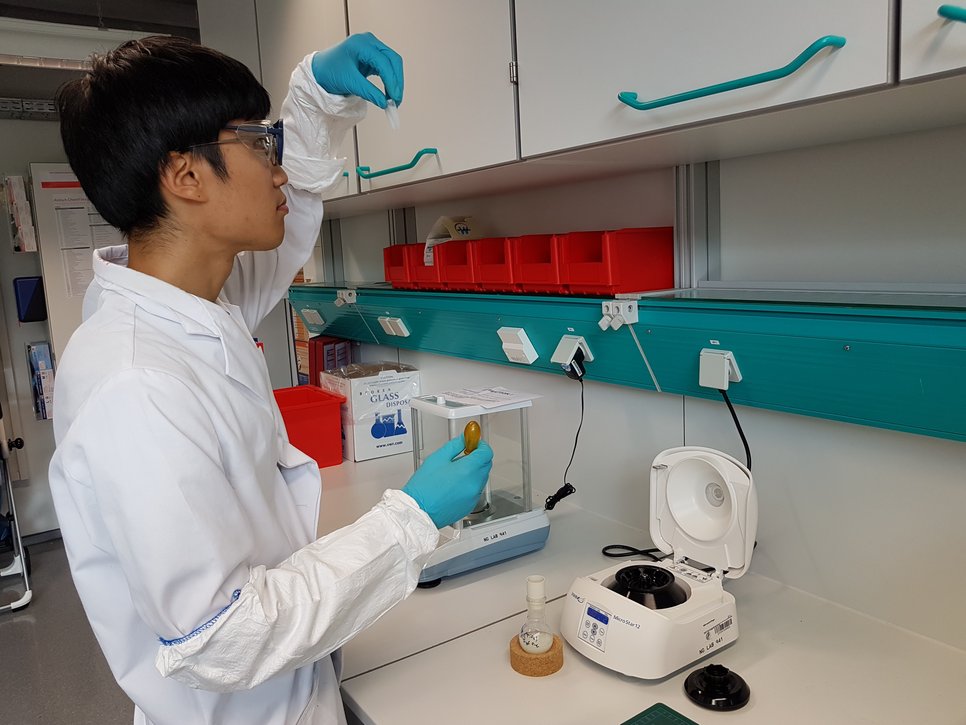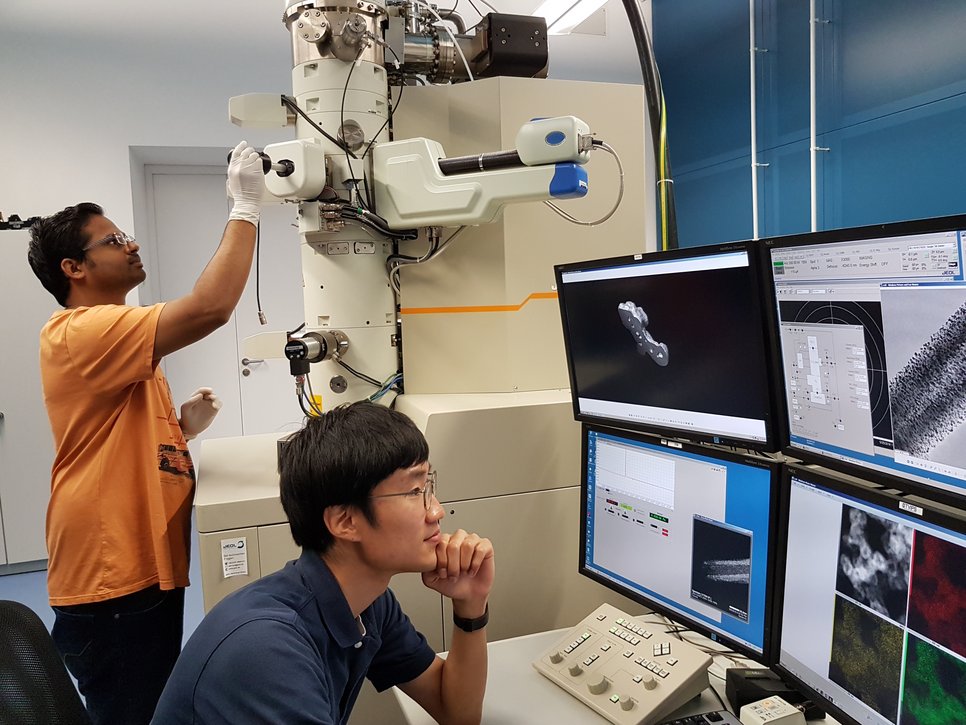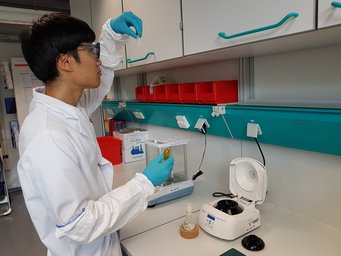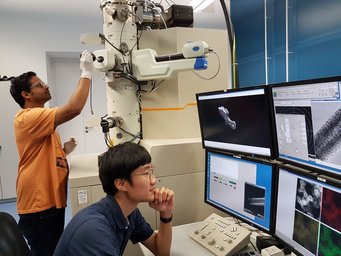New Humboldt fellow at the MPIE

Dr. Joohyun Lim, postdoctoral researcher from South Korea, received a fellowship from the Alexander von Humboldt Foundation and joined the Max-Planck-Institut für Eisenforschung (MPIE) in May. Lim works in the group “Nanoanalytics and Interfaces” of Prof. Christina Scheu. “I am specialized in the synthesis of nanomaterials and now I chose the MPIE as my host institution to understand the formation and reaction of these materials using particularly the advanced transmission electron microscopy techniques. My target is to connect the synthesis and characterization with application possibilities in the fields of batteries and electrocatalysts”, explains Lim. Therefore, he also works with the group of Prof. Karl Mayrhofer, now director of the Helmholtz Institute Erlangen-Nürnberg for Renewable Energy and formerly leader of the group “Electrocatalysis” which is still active at the MPIE.

“It’s my first time to work and live in a foreign country. Thanks to the support of the Humboldt foundation, my wife and I have the chance to take an intensive German course for two months. It was a very valuable opportunity for us to learn the German language and culture and to get to know many people with diverse cultural backgrounds. I believe this experience will help me to work with various researchers and colleagues as well as to live here.’’
Before joining the MPIE, Lim was a postdoctoral researcher at the Ewha Womans University in Seoul (South Korea) from 2015-2017, where he specialized in chemistry and nano sciences. He did his PhD and bachelor studies in chemistry at the Seoul National University. During this time, he won several awards like a scholarship of superior academic performance and a science fellowship.
Scientists from over 35 nations are working at the MPIE to develop materials applicable in the fields of mobility, energy, infrastructure and information. Some of these scientists are funded by the Alexander von Humboldt Foundation which supports excellent researchers from outside Germany with an up to two years scholarship to continue their work in a German research institution of their choice. The scholarship counts as an award for the scientist as well as for the host institution.

